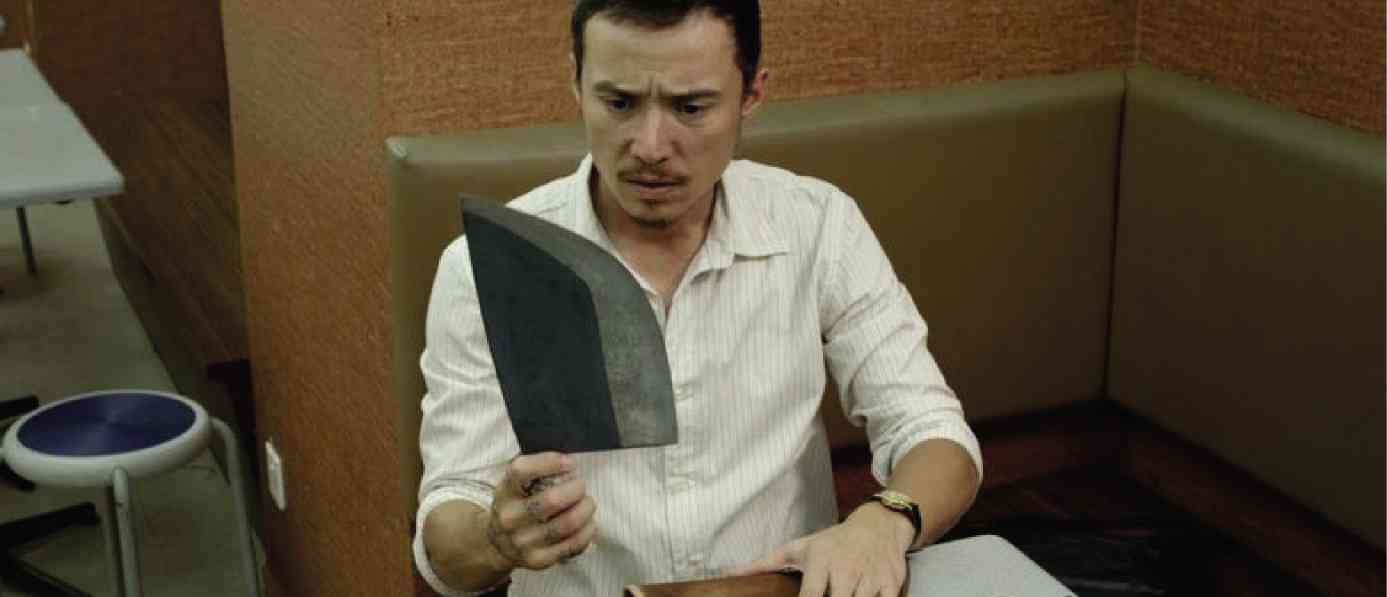Censors be damned
Ken Kwek, Singaporean filmmaker, is certainly no stranger to controversy.
The former political reporter of The Straits Times turned to cinema “to pursue issues with the kind of honesty and integrity that good journalism demands.”
Alas, his short film, “Sex. Violence. Family Values,” was banned by the Singaporean and Malaysian governments in 2012.
Did that defuse his zeal and dilute his work? Not a chance.
For his feature film debut, “Unlucky Plaza,” he goes beyond the sleek, sophisticated veneer of the modern city-state and tackles xenophobia and the plight of overseas Filipino workers (OFWs), as personified by a luckless restaurateur-turned-hostage-taker played by Epy Quizon.
Again, “Unlucky Plaza” was almost given the thumbs down by Singaporean censors last year. It was pulled out of Malaysian cinemas last January.
Still, he persists in making films “because the joy and passion … ultimately trump the difficulties,” he told the Inquirer.
So, how can an artist survive (and thrive) in such a constricting environment?
“To put it bluntly: by not giving a f*ck,” he quipped. “An artist cannot produce good work if he or she is constantly second-guessing what authorities will or won’t permit. I told myself that I would not let people who know nothing about filmmaking affect my approach to it.”
Nevertheless, cinema is not merely about stirring a hornets’ nest, he pointed out. “I don’t embark on projects with the express intention of ‘pushing boundaries.’ My first and final objective is to entertain.”
With “Unlucky Plaza,” he sought to tell a “universal” story. “Everyone can identify with it. The dilemmas of immigration, xenophobia and wealth inequality strike me as common problems in today’s globalized world. And these problems can be explosive. It also makes good material for drama.”
His background in journalism undoubtedly was put to good use in his debut film, which will open in local theaters on April 20.
He explained that he is “very familiar” with the struggles of OFWs.
“As a reporter, I got access to all kinds of places and people,” he recalled. “I won in-house awards for stories on marginalized communities, including OFWs.”
These real-life stories, he said, were in the back of his mind when he wrote “Unlucky Plaza.”
In the film, there was a scene that depicted “Singaporean demonstrators who use one Filipino’s crime to protest against all Filipinos.” Curiously, soon after filming wrapped up in 2014, “an actual anti-Filipino rally took place in Singapore.”
“It upset me,” he asserted. “I was outraged that the Singapore police caved in to the demands of a xenophobic minority. So, when the film was released, I made sure there was a special screening for OFWs, as a way of countering the hatred of xenophobic protestors.”
He remains radically optimistic, against all odds. “My hope is that the film will bring Singaporeans and Filipinos together, with the message that we are not so different. We can live and work well together.”
A perfect example is his collaboration with Quizon, whom he met during a Manila visit in 2012. “We realized that we had common interests and shared the same sense of humor and curiosity about the world. It didn’t take long for us to become brothers. I may be his direk, but he is my kuya.”
Quite obviously, Kwek has imbibed not a few of Quizon’s Filipino-ness.
“I’ve been to Cebu, Boracay, General Santos City,” he related. “I love it here. Things may not be as organized and efficient [compared to Singapore], but Filipinos strike me as being more flexible, friendlier and happier.”
And he can’t have enough of the cuisine!
“I dig Filipino food,” he exclaimed. “I love a hearty Filipino breakfast: longganisa and tuyo with garlic rice, topped with tomatoes and fried egg. For supper, bulalo rocks! Or arroz caldo with kwek-kwek. I always feel a bit like a cannibal when I eat kwek-kwek, though!”

